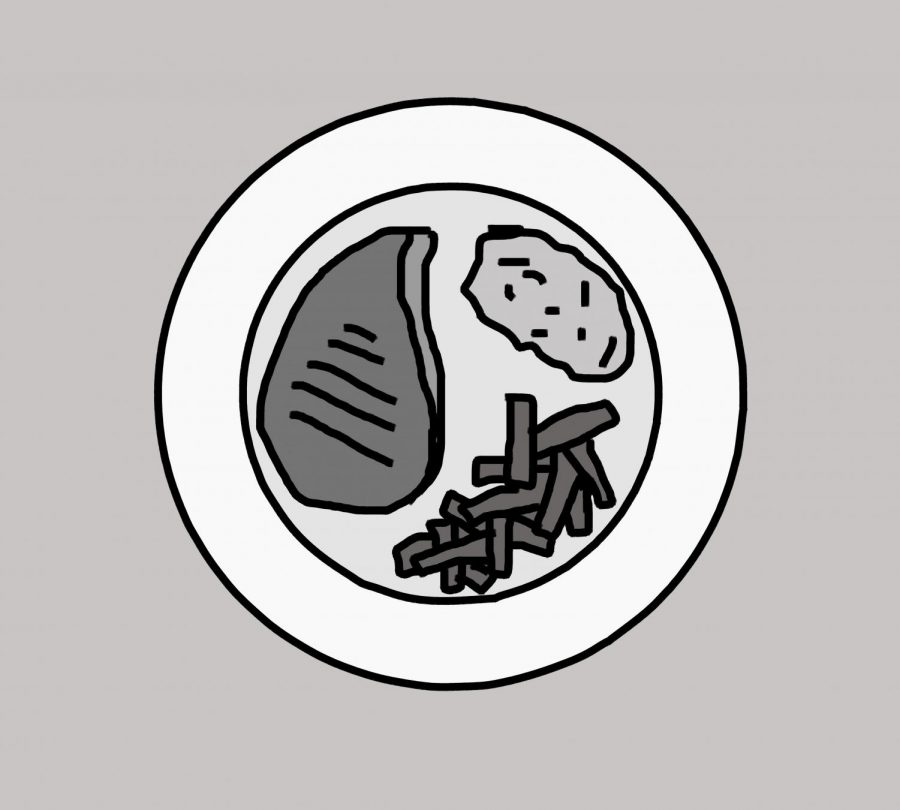Taking time to taste
May 8, 2020
As I write this, I am sitting on my back porch in Tennessee; my mamma is grilling buns and okra while the bbq is cooking in the crockpot inside. I can smell her bbq, even through thick walls. Good food permeates; it can be tasted before even touching your mouth. This is what I miss most about home: my mamma, her food and my back porch.
When we go inside to finally sink our teeth into that tenderized meat, I will want for nothing. I have dreams about bbq in Walla Walla, so I will not take this rare moment for granted. I eat slowly and with care — I don’t want to miss anything. What I eat is incredibly important to me; I have cultivated a deep respect for my food, and it has truly changed the way I live my life.

It is important to savor your food. Consider — where did your food come from? Who made it? What is its cultural significance? In every bite lies a detailed, complex history — don’t let it go to waste.
When we eat without consideration, we begin a practice of disrespect. Whether your meal comes from your grandmother’s kitchen or a drive-thru, someone took the time and care necessary to feed you; it is only right that we should return the favor. Food is nourishment, sustenance; it takes resources, labor and lots of hard work. Most of what we eat is both tradition and innovation; new paint on old canvas.
My favorite recipes are made by my momma. Most of these recipes have been passed down through generations; you can tell what dishes were born out of the Great Depression and the victory garden; what recipes were created in Georgia or West Virginia or Ireland. But even if what you are eating is not your family recipe, it’s someone’s recipe. We must appreciate what is not ours as much as what is ours. Everything you eat comes from somewhere, from some family and some culture.
Who we eat with is just as imperative as what we eat. Mealtime is when we gather. As we share the food we have made, we share in a community. We exist for a small moment in the cook’s mind: we get a glimpse of what they like to eat, what they think is too salty, their favorite oils and herbs. They exist for a small moment in our minds, too: if we prefer sweet or sour flavors, how long it takes us to finish a meal and even what utensils we prefer. Sharing food allows us to convene and discover together, by meeting a need we all share.
Whether it’s gourmet or take-out, what we eat tells us about who we are and where we come from. Next time you sit down for dinner, reflect on what you are eating. Acknowledge the efforts of the cook, especially if that’s you. Be inquisitive and curious about the cuisine you eat — research your favorite dishes and learn more about the ingredients that make up your meal. Get your hands dirty and try new things. Be thankful for what is on your plate. My momma’s bbq is on my plate — what’s on yours?




